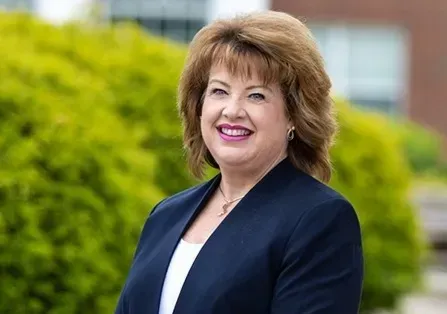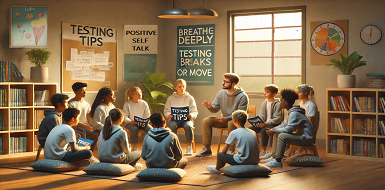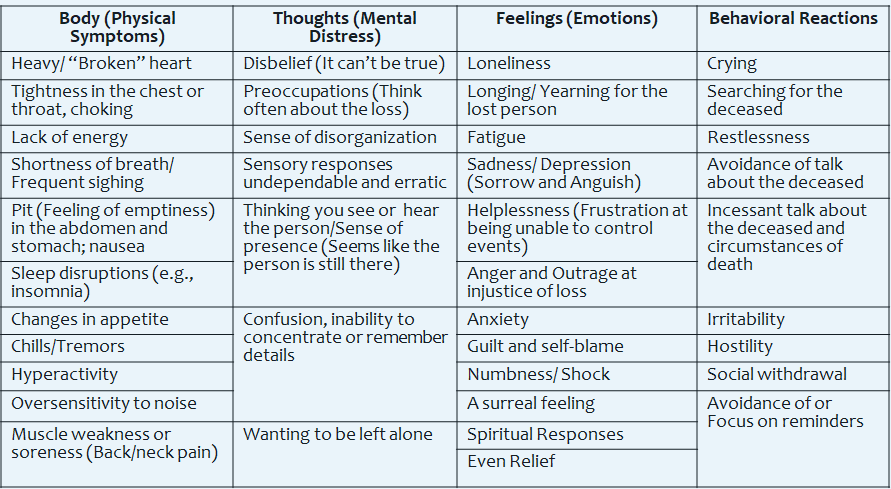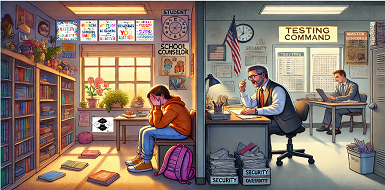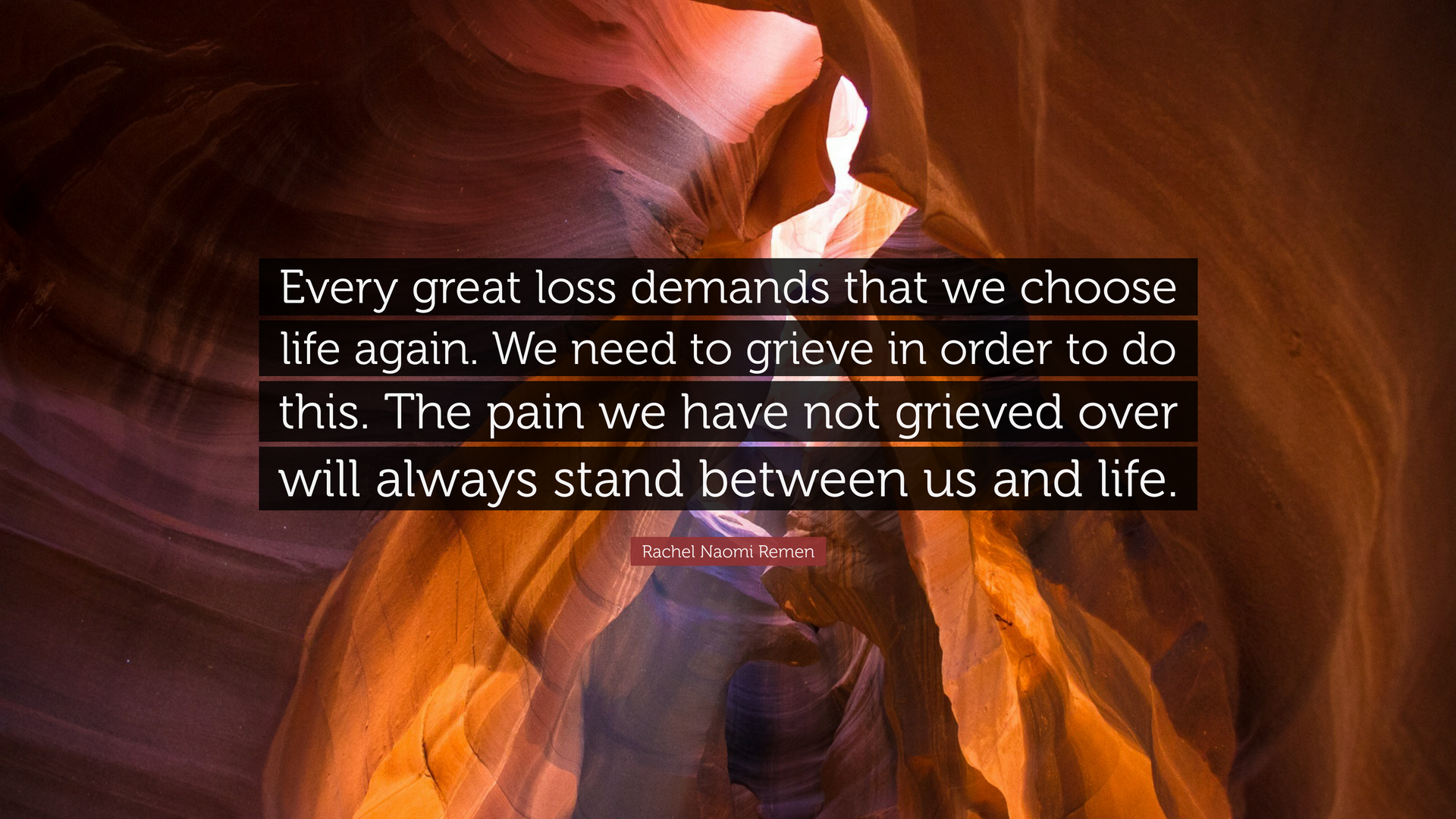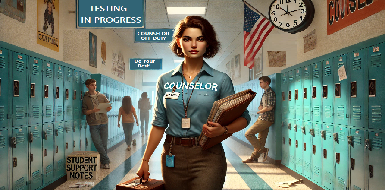The Many Roles of a School Counselor
Mind, Eyes, Ears, Mouth, Heart, Hands, and Feet
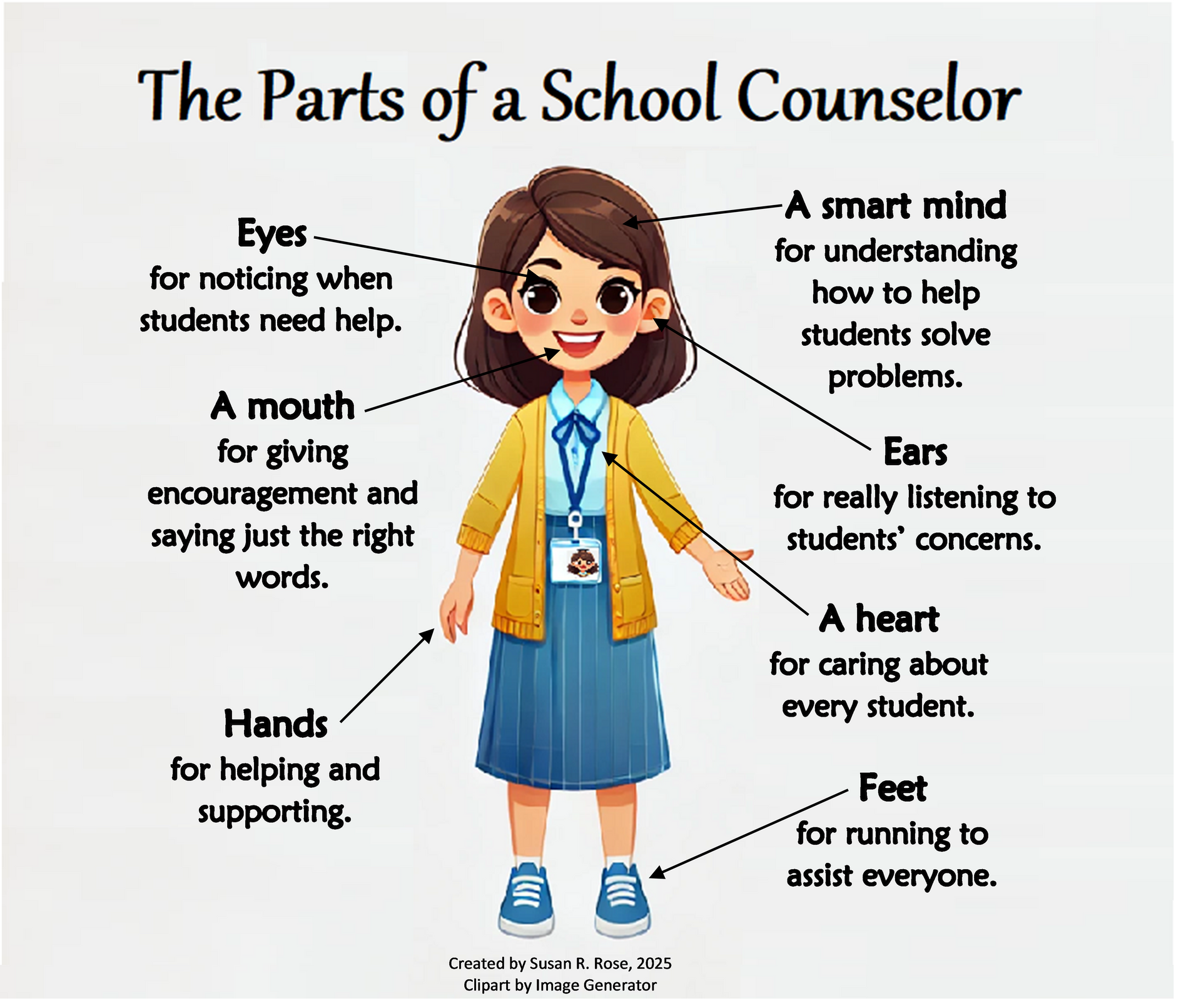
School counselors wear many hats, playing a vital role in the academic, personal/social (mental health), and career development of students. Their work extends far beyond scheduling classes or handling college applications—they serve as problem-solvers, encouragers, listeners, and advocates, guiding students through challenges and helping them build a successful future.
To truly understand the impact of school counseling, we can look at the essential parts of a counselor’s work through the mind, eyes, ears, mouth, heart, hands, and feet, each representing a critical function of their role in students’ lives in all domains - Academic, Personal/Social (Mental Health), and Career.
The Mind: Helping Students Solve Problems
A school counselor’s mind is always engaged—analyzing situations, teaching students to think critically, and helping them develop problem-solving skills in all domains.
In the academic domain, counselors assist students in setting educational goals, managing their time effectively, and overcoming barriers to learning.
- They help students overcome learning difficulties by identifying strategies to improve study habits, time management, and organization.
- They help all students develop study skills and organizational strategies to improve academic success.
- They guide students in goal setting, ensuring they have a clear academic roadmap for success.
- They collaborate with teachers and parents to develop personalized support plans for struggling students.
In the personal/social (mental health) domain, counselors teach students how to process emotions and resolve conflicts, helping them develop self-awareness and emotional regulation.
- They offer coping strategies for anxiety, stress, and depression, ensuring students have healthy ways to manage challenges.
- They help students navigate peer relationships, equipping them with problem-solving and communication skills.
- They analyze patterns of behavior and emotional triggers, intervening before small issues escalate into crises.
In the career development domain, counselors assist students in career exploration, helping them assess interests, skills, and passions.
- They introduce problem-solving strategies for students uncertain about their future, guiding them through decision-making processes.
- They help students connect academic efforts to future career goals, reinforcing the importance of perseverance and planning.
- They provide opportunities for self-reflection, encouraging students to think critically about their strengths and ambitions.
- They advise on course selection and college/career pathways, ensuring students are prepared for future opportunities.
A school counselor’s mind is always engaged—analyzing situations, guiding students to think critically, and helping them develop problem-solving skills. Through role-moldeling, counselors train the minds of students to think strategically, fostering resilience and a growth mindset that will carry them beyond the classroom. School counselors help students become independent thinkers, empowering them to navigate their academic, personal, and career challenges with confidence.
The Eyes: Noticing When Students Need Help
A counselor’s eyes are always observant, noticing subtle changes in behavior, mood, or social interactions. In the personal and social development domain, this awareness helps them recognize when students are struggling with anxiety, depression, bullying, or other emotional challenges.
- They detect warning signs of mental health concerns and provide early intervention.
- They notice shifts in peer relationships and mediate conflicts to foster a positive school environment.
- They identify students facing family hardships or personal crises, ensuring they receive support.
This supports the academic and career development as well, because students cannot learn when their personal/social needs are not met. It's that Maslow before Bloom idea that is research proven. And, of course, school counselors also notice when students need help in all areas.
By keeping their eyes open, school counselors are able to step in at the right time, offering proactive support before small concerns turn into major obstacles.
The Ears: Truly Listening to Students’ Concerns
One of the most valuable gifts a counselor gives is their ears—listening intently to what students are saying (and sometimes what they are not saying).
- They provide a safe space for students to express their fears, struggles, and dreams.
- They listen without judgment, helping students feel heard and understood.
- They decode unspoken emotions, recognizing distress even when students struggle to articulate their feelings.
Through active listening, school counselors empower students to find their voice, work through problems, and gain confidence in their own decision-making abilities.
The Mouth: Offering Encouragement & Saying the Right Words
Words have power, and a school counselor’s mouth is used to uplift, guide, and encourage students.
- They motivate students to believe in themselves, reinforcing self-worth and resilience.
- They de-escalate conflicts with calming words, teaching students how to resolve disagreements peacefully.
- They deliver difficult but necessary truths, challenging students to grow while offering reassurance.
Oftentimes, a single word of encouragement from a counselor can change the trajectory of a student’s life, inspiring them to push forward despite challenges.
The Heart: Caring About Every Student
At the core of school counseling is the heart—a deep, unwavering commitment to student well-being.
- Counselors invest emotionally in students, treating each one as an individual with unique needs and strengths.
- They create a welcoming space where all students feel valued and accepted.
- They advocate for students who feel unseen, ensuring that every child receives the support they deserve.
Compassion fuels every aspect of a counselor’s work, making them a source of comfort, encouragement, and inspiration for students navigating difficult times.
The Hands: Helping and Supporting Students
A school counselor’s hands are always at work—building programs, providing resources, and guiding students through challenges.
- They help students complete applications for colleges, scholarships, and jobs.
- They organize support groups for grief, stress management, and social skills.
- They collaborate with teachers, parents, and community resources to strengthen student support systems.
By extending a helping hand, counselors ensure that students have access to the tools and resources they need to thrive.
The Feet: Running to Assist Everyone
A school counselor is always on the move—whether rushing to de-escalate a crisis, attending a meeting to advocate for a student, or stepping in to support a struggling child.
- They respond immediately to students in distress, whether it’s a personal crisis or an academic concern.
- They walk students through big transitions, from middle to high school, or from high school to college and career planning.
- They travel between classrooms, offices, and meetings, ensuring no student is left behind.
Their feet take them wherever they are needed, making them one of the most visible and accessible supports in a school.
The Whole Picture: School Counselors Shape Lives
When we put all these parts together, we see the whole counselor—an advocate, a problem-solver, a listener, a motivator, a compassionate heart, a helper, and a support.
School counselors play a critical role in shaping students’ futures by addressing their academic, personal/social, and career development needs. By using their mind, eyes, ears, mouth, heart, hands, and feet, they make a lasting impact—one student at a time.
Now more than ever, schools need to recognize the value of counselors and invest in their presence to ensure every student has the support they deserve.
When a school counselor is fully engaged, lives are changed!
I am a school counselor turned counselor educator, professor, and author helping educators and parents to build social, emotional, and academic growth in ALL kids! The school counseling blog delivers both advocacy as well as strategies to help you deliver your best school counseling program.

I'm a mother, grandmother, professor, author, and wife (I'll always be his). Until October 20, 2020, I lived with my husband, Robert (Bob) Rose, in Louisville, Ky. On that awful day of October 20,2020, my life profoundly changed, when this amazing man went on to Heaven. After Bob moved to Heaven, I embraced my love of writing as an outlet for grief. Hence, the Grief Blog is my attempt to share what I learned as a Counselor in education with what I am learning through this experience of walking this earth without him. My mission is to help those in grief move forward to see joy beyond this most painful time.
